At Least 42 Executed In 10 Days In Iran: Human Rights Organization
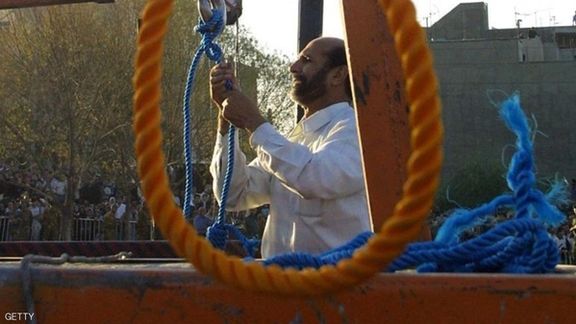
Iran has carried out at least 42 executions in the past 10 days alone, human rights campaigners warned on Friday.

Iran has carried out at least 42 executions in the past 10 days alone, human rights campaigners warned on Friday.
The victims include 22 members of the Baluch minority, according to the Norway-based monitoring group the Iran Human Rights Organization (IHR).
The figures mean the Islamic Republic has executed one person every six hours while governments worldwide have remained silent.
Calling on the international community to take immediate action, IHR director Mahmood Amiry-Moghaddam said: “More than half of those executed were Baluch minorities and drug defendants from the most marginalized communities who are low-cost victims of the government’s killing machine.”
He added that the purpose of the executions is to create societal fear, not to fight crime.
“The UN Office for Drugs and Crimes (UNODC) and their funding Member States have a unique responsibility to stop the Islamic Republic’s execution machine and shouldn’t allow the authorities’ cooperation with the UNODC to legitimize the executions,” noted Amiry-Moghaddam.
IHR also warned of widespread further executions set to take place in Qezel Hesar Prison in Karaj near Tehran.
Of the 42 people executed in the last ten days, only two have been announced by official sources. At least 194 people have been executed in 2023 in Iran.
Baluch minorities are grossly overrepresented in Iran's execution numbers. Baluch people also accounted for almost half of the executions related to drugs in 2022.
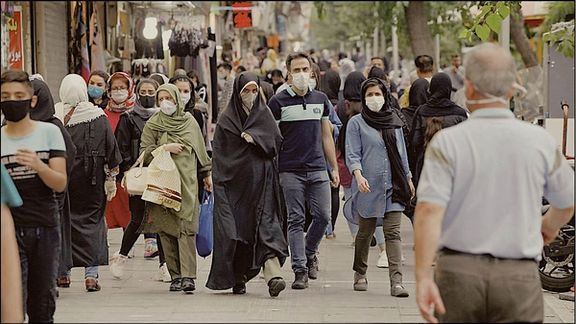
A Sociologist says that Iranian society is suffering from a deep sense of injustice, inequality, being entangled in a political impasse and worried about the future.
Political bottlenecks and crises are causing troubles for everyone, Hadi Khaniki told Etemad Online Thursday. But all this can hopefully lead to some kind of renovation and rejuvenation, he added. "In other words, there is hope in some kind of transformation."
Meanwhile, another prominent Iranian sociologist, Mohammad Fazeli, says "man needs to understand plurality in order to create hope." Referring to a turbulent period since September, he said, "As new dimensions in the relations between the government and the people became evident during the past year, Iran experienced a lot of days full of hope and despair."
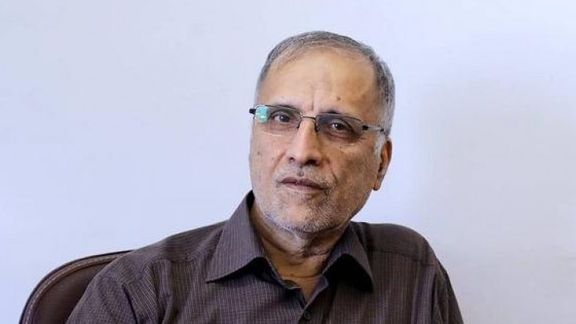
In a sense, said Fazeli, Iranians were looking for their lost rights during the 2022 protests. He explained that society continues to live on a series of fault lines which reinforce each other. There is an economic fault line which has been activated because of various sanctions imposed on Iran. Citizens experienced deep economic problems in the 2010s with the economic growth flat, amid rising inflation.
At the same time, there has also been a social fault line. Between 84 to 86 percent of Iranians were born during the years after the 1979 Islamic revolution. They have been living with a different value system. In the meantime, new values have emerged, and many Iranians believe in those new values.
Fazeli was referring to the new generation rejecting the clerical regime’s interference in their personal lives, and their higher awareness of conditions in other countries.
Still at the same time, there is another fault line that has emerged as a result of the government's inefficiency, which has created a host of unresolved problems the population has to deal with.
The people see that the problems with environment, water, transportation, brain drain and immigration, rising inflation and so on have never been solved. At the same time, people are concerned about Iran’s rising tensions with the world.
“This is a society that lives with the tension of an uncertain future which could potentially lead to a popular revolt. Even if you failed to see this in the 2000's, you must have seen and felt it during the crises of mid 2010s. If not, you could not miss it during the protests since 2018. In that year, I called the Iranian society "a society that has lost everything it used to have," Fazeli said.
One person lost his hope, another one lost his job or business, yet another one lost the hope for living in a better world while others felt they have lost the lifestyle they were used to. Every one of them represented a large part of the Iranian society.
Even the religious people thought they lost something when they saw that commitment to religious values have declined.
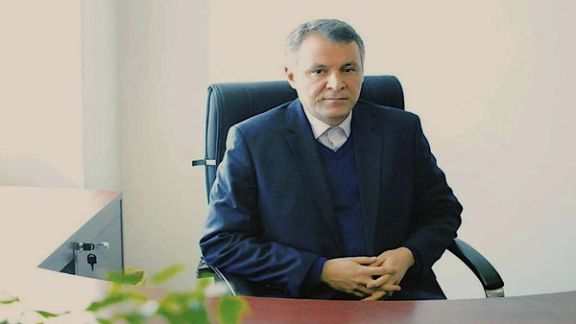
Fazeli reiterated that the critical situation in Iran is caused by a series of crises as they have all converged at the same time and at the same point. He explained that in every society there are satisfied people and those who are disenchanted. But when dissidents dramatically outnumber those who are happy, then a serious political crisis will emerge.
"I saw a research paper recently in which some 24 percent of the population said their financial situation had improved during the past two years, more than 60 percent said their situation has worsened and a small number said there has been no difference for them. When the number of those who are dissatisfied is three times more, there is trouble on the horizon.
Referring to the government’s inability to deal with multiple crises he said, "If you are not improving the situation, you cannot tell the people that they have to tolerate it. The people might listen to you only if you are prepared to give something to them. And let us note that their threshold of tolerance now is extremely low."

US Commission on International Religious Freedom (USCIRF) is outraged over reports that Iran may execute two political prisoners for “insulting the prophet."
Yousef Mehrad and Sadrollah Fazeli-Zare', jailed for insulting religious entities in Arak prison, were transferred to solitary confinement, raising fears their execution was imminent.
USCIRF Commissioner Sharon Kleinbaum tweeted Friday, “USCIRF is outraged and alarmed by indications that Iran may imminently execute Yusef Mehrdad and Seyyed Sadrullah Fazeli Zare in the religious charge of ‘insulting the Prophet.’ Execution for blasphemy is a grave violation of religious freedom.”
UNCIRF is an independent, bipartisan federal government entity that monitors and reports on threats to religious freedom.
US Special Envoy for Iran Robert Malley echoed the statement in a tweet, expressing his outrage. “Iran must stop persecuting and killing people for exercising their freedom of religion.
Mehrad, father of three, and Fazeli-Zare' were arrested in May 2020 over blasphemy-related charges after authorities accused them and five others of being a member of a Telegram channel entitled "Critique of Superstition and Religion." Members of the group reportedly expressed opinions about Islam and its Prophet Muhammad that were deemed insulting by the Islamic Republic.
In April 2021, Branch 1 of the Arak Criminal Court sentenced Mehrad and Fazeli-Zare' to death for "insulting Islamic sanctities" and "insulting the Prophet".
In June 2021, the Arak Revolutionary Court reportedly sentenced Mehrdad to eight years in prison in a separate criminal case for "propaganda against the state", "founding or leading an organization that aims to disrupt national security", and “insulting the Supreme Leader”.
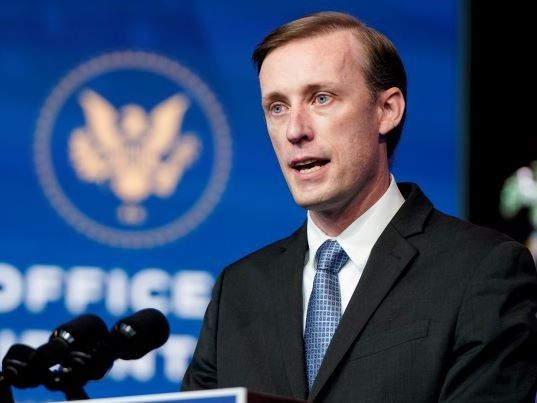
Israel is hoping for a breakthrough this weekend in efforts to normalize ties with Saudi Arabia during US national security adviser Jake Sullivan's visit there, a senior security official said on Friday.
The head of Israel's National Security Council, Tzachi Hanegbi, spoke on Wednesday with his counterpart Sullivan, who is set to travel to Saudi Arabia on Saturday. Sullivan is expected to meet with Saudi Crown Prince Mohammed bin Salman, Hanegbi said.
Announcing his trip on Thursday, Sullivan said Washington was working hard to normalize relations between Israel and Saudi Arabia - a major goal set by Israeli Prime Minister Benjamin Netanyahu who briefly joined Sullivan's video call with Hanegbi.
"We are very, very hopeful that there will be a breakthrough during his visit there," Hanegbi told Reshet 13 News.
Asked whether a breakthrough would be a phone call between Saudi leaders and Netanyahu, Hangebi said: "There are those who say that there have been more than phone calls between Saudi and Israeli leaders. But what is important is that the United States lead a move adding Saudi Arabia to the Abraham Accords - normalization and peace with Israel. If that happens it will be a historic turning point."
The US in 2020 brokered the historic Abraham Accords deal, which included the normalization of diplomatic relations between the United Arab Emirates and Bahrain with Israel, all of which share security fears over Iran.
While Riyadh signaled approval of the accords, it has held off on following suit, saying Palestinian goals for statehood should be addressed first.
Any such prospects have been clouded, however, by Riyadh's strains with US President Joe Biden, its recent fence-mending with regional rival Iran, and the rise of Netanyahu's hard-right Israeli government.
Report by Reuters
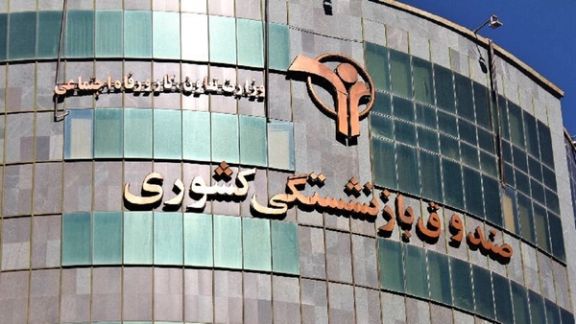
An Iranian official was fired after he said this week the government may have to sell a few islands and the oil-rich Khuzestan Province to pay the pensioners.
The director general of social insurance in Iran’s Ministry of Labor, Sajjad Badamforoush, said: “Even if we sell two to three million barrels of oil with sanctions removed, we still cannot solve the pensioners' issues."
Although most observers in Iran took the director's statement with a pinch of salt as typical Iranian exaggeration, yet, what he said shed light on the fact that the country's Pension Fund, once one of the richest institutions in Iran is on the verge of bankruptcy because of corruption and mismanagement.
Iran’s Social Security Organization is a public institution that provides health insurance, pension and unemployment benefits to its members. They range from workers and government employees to self-employed individuals. More than half the population receive some type of benefit from the organization.
The official said that not only the Pension Fund is unable to pay the pensioners, it also does not have enough resources to cover its debts to domestic and foreign creditors.
Iranian economist Ahmad Maydari noted that the idea of selling islands to make up for the Pension Fund's deficits comes as a movie based on a true story that took place in Greece. This, he said cannot happen Iran. Instead, he suggested that the government needs to change the laws that allow ad hoc withdrawals from the fund.
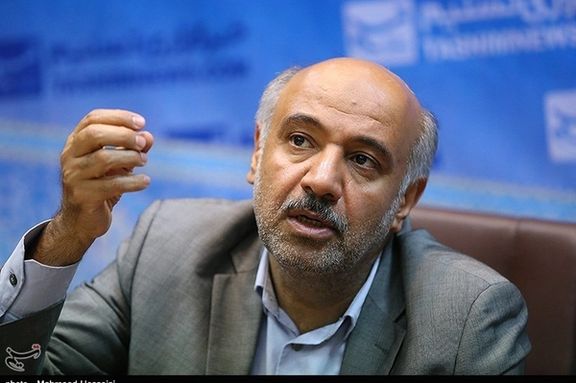
Lawmaker Mohsen Pirhadi has said that 15 percent of this year's budget will be spent on the repayment of loans taken by the Pension Fund.
A pessimistic report in Rouydad24 website, however, pointed out that the crisis concerning the Pension Fund will paralyze Iran and will plunge its economy into a new crisis in less than two decades.
A former chief of the Pension Fund, Mahmoud Eslamian says the problem is the result of successive governments failing to pay social security premiums to the fund for tens of millions of people.
What the presidential administrations have done with the massive amount of money is not clear. One observer likened the problem to a clock bomb that will surprise everyone when it is detonated.
A former vice-president under President Hassan Rouhani said 8 years ago that the problem of the Pension Fund is one Iran's three major looming crises along with water shortage and damage to the environment.
However, most officials who speak about the problem ignore corruption and mismanagement as the underlying reason for waste and embezzlement of financial resources.
One thing which is clear, political appointees, especially since the presidency of populist Mahmoud Ahmadinejad, invested funds in Iran’s state-controlled unprofitable companies managed by cronies, with a high potential of corruption.
Economist Mohammad Khoshchehreh accused Iranian officials for delaying the crisis rather than solving it for decades. "They did not solve a small problem and instead simply watched it as it grew into a major crisis," said Khoshchehreh, adding that it is now turning into a super crisis. The economist pointed out that solving this crisis needs efficient strategic management.
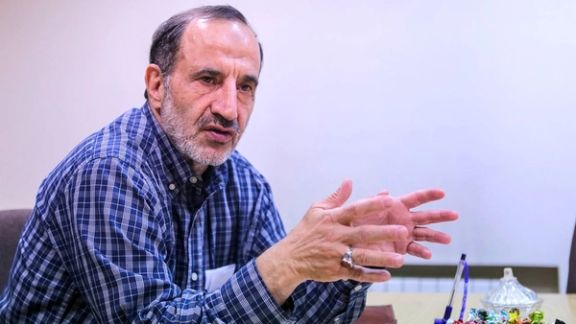
A quick temporary solution is increasing the age of retirement, he said, noting like many others that some Iranians retire even between the ages of 40 and 50 and that adds more burden on the Pension Fund.
Labor market specialist Hamid haji Esmaili got closer to the main problem and told Khabar Online that political appointees are using the Pension Fund as their personal backyard, referring to past scandals about government officials channelling funds to the wrong direction for personal or political gain. This crisis, he warned, will ruin all of the country's economic structures.
Meanwhile, Haji Esmaili observed that part of the current crisis would have not happened if the government was not facing a budget deficit and did not have to put its fingers in the pensioners' pockets. He regretted that "Unfortunately, like its predecessors, the current government has no plans whatsoever to tackle the problem."
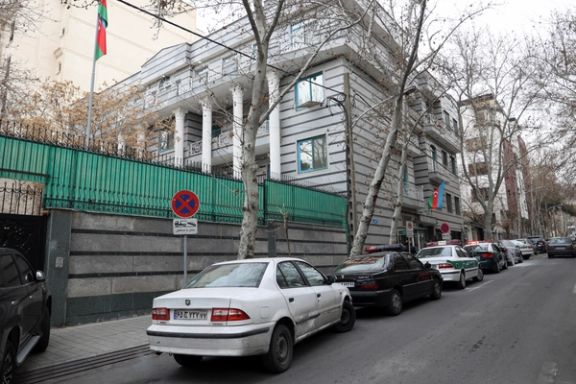
The Islamic Republic has expelled four Azerbaijani diplomats as tensions simmer between Tehran and Baku.
The Iranian state news agency IRNA reported the move on Friday, saying that four diplomats in Tehran and Tabriz have been declared as “persona non grata” and should leave the country immediately.
Describing the measure as a tit-for-tat action, the report said it was a response to Azerbaijan's expelling four Iranian diplomats in early April.
Azerbaijan had said it was expelling the Iranian diplomats over "provocative actions" referring to a series of actions in recent months including military exercises carried out by Iran's armed forces on the border. Baku's decision was announced shortly after it arrested six Iran-funded agents accused of a coup plot.
In January, a gun attack at the Azerbaijan embassy in Tehran left one man dead and last month, there was an attempted murder by what is believed to be an Iranian cell, of Azerbaijani MP, Fazil Mustafa.
The move was seen in part due to Baku's improving relations with Tehran's archnemesis Israel, the dispute spiking when Baku opened an embassy in Israel in late March, slammed by Iran as an anti-Iranian move, a claim denied by Azerbaijan.
Tehran accuses Baku of harboring Israeli intelligence and military elements that plan to use its territory in a possible attack against Iran’s nuclear installations.
Around a quarter of Iran’s population is Azari, with analysts and activists disagreeing over the closeness of their cultural and linguistic links to their neighbors to the north.